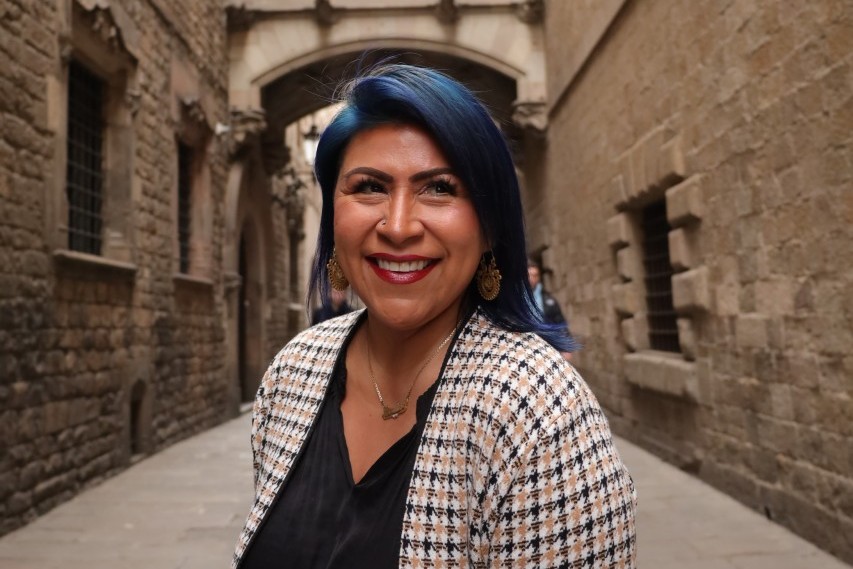For some, hobbies are a way to pass the time. For Louise Razzagone, they are a way of life, and one of her biggest passions is escape rooms. She’s not just a casual player; she’s an enthusiast who has attempted over 110 rooms across seven different countries. What drives this dedication? It’s a mix of brain-bending challenges, the thrill of a ticking clock, and a deeply personal connection.
Listen In
My full interview with Louise Razzagone is available to listen to below. With such a wide range of escape room experiences, she has a unique perspective on what makes escape rooms successful and why they’re an important component to strong mental health.
Escape Rooms are a Workout for the Brain
“I feel like it’s a good brain exercise.”
Louise’s journey into the world of escape rooms deepened after her father was diagnosed with Alzheimer’s. She was looking for ways to challenge her own brain, a sort of mental exercise to keep sharp. Escape rooms, with their intricate puzzles and demand for creative thinking, were the perfect fit. “I feel like it’s a good brain exercise,” Louise explains, seeing it as a way to engage in neuroplasticity.
She’s onto something. Neuroplasticity is the brain’s ability to form new connections and reorganize itself in response to new challenges and experiences. Research has shown that regularly engaging in mentally stimulating activities, like the problem-solving required in escape rooms, can help delay cognitive decline. Each puzzle solved and clue uncovered provides a small hit of dopamine, a chemical that boosts feelings of pleasure and motivation, which helps with memory and attention. For Louise, it’s more than just a game; it’s an investment in her own cognitive health.
“I really loved seeing the timer like going down and getting like really… oh my god, we have to figure this out!”
The initial hook, however, was the sheer novelty and immersion of the experience. She remembers one of her first rooms, a Batman-themed adventure at Komnata Quest in Brooklyn, as being so incredibly immersive that it felt like stepping into a movie. “You literally felt like you were in the sewers with the Joker,” she recalls, citing the music and detailed props that made the world feel real. This, combined with the adrenaline rush of the countdown, created an unforgettable thrill. “I really loved seeing the timer like going down and getting like really… oh my god, we have to figure this out!”
Next-Level Escape Rooms
With over a hundred games under her belt, Louise has developed a keen eye for what separates a good escape room from a great one. Her insights offer a valuable playbook for escape room owners looking to elevate their business.
It starts before the clock does. A themed lobby that maintains the mystery and a game master who is genuinely enthusiastic about the story can make a huge difference in setting the tone. A disengaged employee can quickly pull players out of the experience.
“I don’t believe in rules for the sake of rules.”
Flexibility is also key. Louise appreciates a hands-on approach where the staff understands the nuance of the game, offering clues when a team is truly stuck rather than sticking to a rigid three-clue rule. “I don’t believe in rules for the sake of rules,” she says, praising owners who customize the experience by asking players how much intervention they want.
The post-game experience is just as crucial. Louise believes many businesses miss a major opportunity to build loyalty. Instead of simply saying goodbye, a simple offer like, “book your next room in 24 hours for a discount,” can make customers feel valued and encourage them to return. Similarly, if a team doesn’t finish, the game master could walk them through the remaining puzzles. She doesn’t like being told to simply come back and pay to play again to see the ending. “And now like I probably won’t come back.”
Escape Rooms for Social Good
Looking to the future, Louise sees a powerful potential for escape rooms to contribute to the community in meaningful ways. She envisions them as a platform for social good, particularly through partnerships with local organizations.
One of the ideas she came up with involves foster care programs. Imagine, she suggests, an internship or mentorship program where escape room owners train older foster youth to become game masters. The role inherently teaches a suite of valuable and transferable life skills:
- Communication and Rapport: Game masters must clearly explain rules and effectively interact with diverse groups of people.
- Problem-Solving: They need to think on their feet to troubleshoot puzzles and guide players without giving too much away.
- Decision Making: Monitoring multiple rooms and deciding when and how to give clues requires good judgment under pressure.
- Business Acumen: They are the face of the business, responsible for ensuring a positive customer experience that leads to good reviews and repeat customers.
Such a program could provide youth with not just a job, but with confidence, a supportive network, and a resume full of soft skills that are attractive to any employer.
The rooms themselves can also be a force for change. Louise suggests that owners could design rooms with themes that raise awareness about different cultures or historical events, like the Civil Rights movement. This would provide an immersive educational experience that engages players on a deeper level. “It gives you like a perspective where you don’t necessarily feel like you have a lesson being jammed down your throat, but at the same time, like you walk away more educated, more aware,” she explains.
For Louise Razzagone, and thousands of enthusiasts like her, escape rooms are a rich and rewarding world. They are a source of fun, a mental workout, and a unique way to connect with people. Each locked door is a new story waiting to unfold, and for owners willing to think outside the box, they can also be a powerful tool for building a better community.
